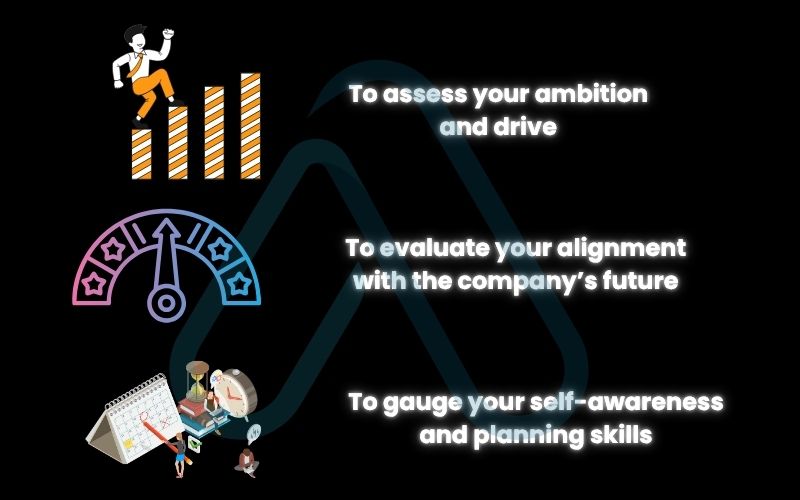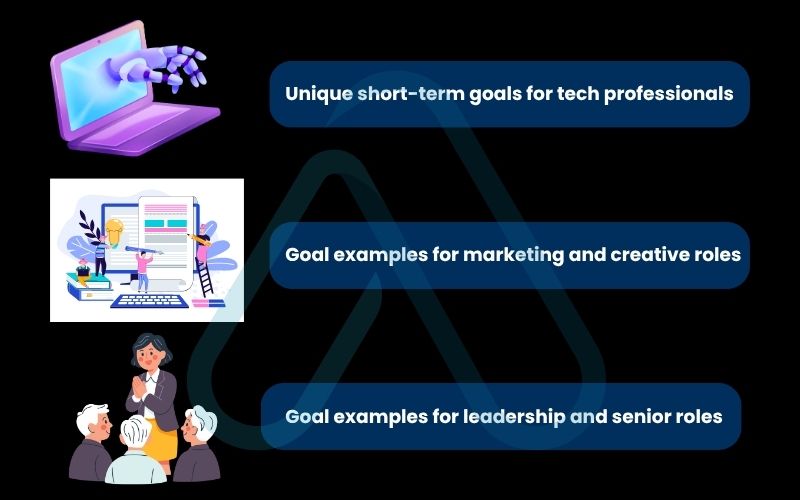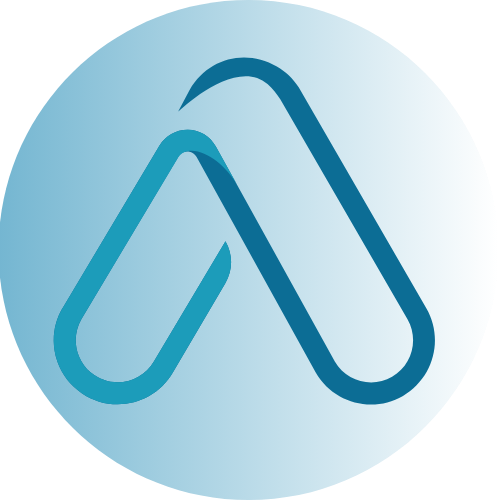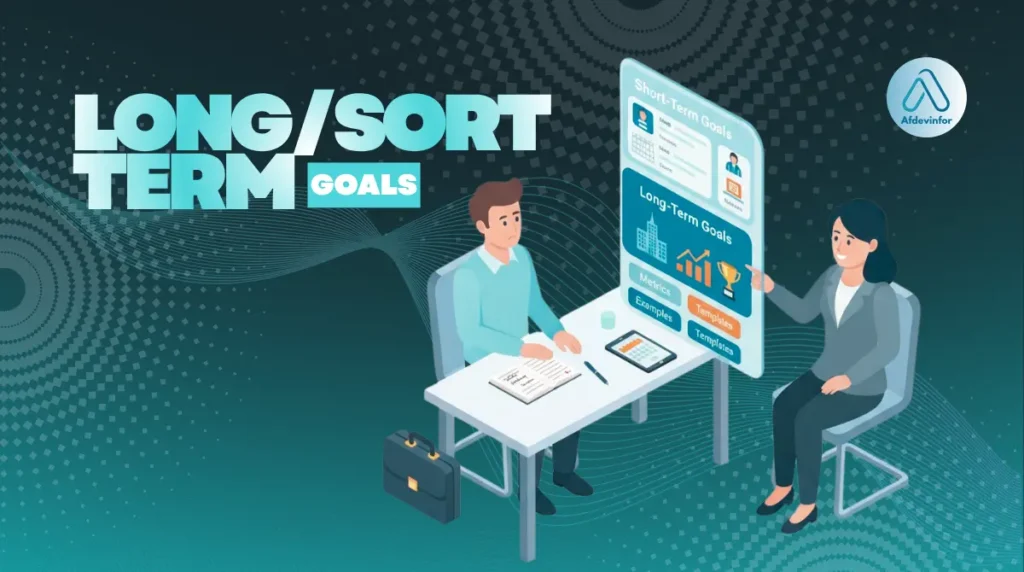Few interview questions cause as much stress as answering what are your long/short term goals? After more than a decade in the tech industry, I’ve seen countless candidates stumble here. But I’m here to replace that anxiety with a clear, actionable strategy. This isn’t just another list of generic answers. It’s my definitive guide to help you craft personalized, high-impact goal statements that will genuinely impress any hiring manager.
- Understand the ‘Why’: I’ll break down exactly what interviewers are looking for when they ask this question.
- Craft Your Answer: You’ll get my unique SMART-A framework for building a powerful, authentic response.
- See It in Action: I provide industry-specific examples and winning templates for every career level.
- Get the Toolkit: You can download my free resources to prepare and practice your answer.
1. Understanding the core concepts between short-term vs. long-term goals
Before you can craft a great answer, you need to be crystal clear on the difference between short-term and long-term goals. Think of it like building a house: your short-term goals are the individual bricks, and your long-term goal is the finished, standing structure. One builds upon the other, and a good plan requires both.
Here is a table that breaks down the key differences to clarify the distinction between short term vs long term goals:
| Attribute | Short-Term Goals | Long-Term Goals |
|---|---|---|
| Timeframe | Within the next 12-18 months | 5-10 years from now |
| Focus | Specific skills, project completions, certifications | Broader career ambitions, leadership, expertise |
| Examples | Master a new programming language, lead a project | Become a subject matter expert, move into management |
1.1. Defining short-term goals
I define short-term goals as specific objectives you can reasonably achieve within the next 12 to 18 months. They are the action-oriented stepping stones on your career path. The best short-term goals you mention in an interview should directly relate to the role you’re applying for, showing the interviewer you’re ready to hit the ground running.
Here are a few diverse examples of strong short-term goals:
- Master a new programming language like Rust or Go relevant to the company’s tech stack.
- Lead a small cross-functional project team from conception to launch.
- Obtain a professional certification, such as a PMP for project managers or a CISSP for cybersecurity experts.
- Become the go-to person on my team for a specific software or process.
1.2. Defining long-term goals
Long-term goals are your major career ambitions, the North Star guiding your professional journey over the next five to ten years. These goals are less about specific tasks and more about the impact and position you aspire to. They demonstrate your vision, commitment, and potential for growth within an industry or company.
A long-term goal isn’t just a job title; it’s a statement about the kind of professional you want to become and the value you want to create.
Examples of aspirational long-term goals include:
- To become a recognized subject matter expert in the field of AI ethics.
- To transition into a senior product management role, shaping the strategy for a suite of products.
- To develop the skills and network necessary to eventually start my own tech consultancy.
1.3. How short-term goals build your long-term vision
The magic in your answer comes from explicitly connecting these two types of goals. You need to show the interviewer that you don’t just have a destination (long-term vision) but also a map to get there (short-term goals). Reinforcing my house-building analogy, you can’t have the finished home without laying each brick perfectly.
Here is a simple visualization of that pathway:
- Short-Term Goal 1: Obtain AWS Cloud Practitioner certification.
- Short-Term Goal 2: Lead a cloud migration project.
- Long-Term Vision: Become a Senior Cloud Architect.
A great candidate shows they have not only a destination but also a map to get there.
2. Decoding the interviewer’s intent: Why employers ask this question
This isn’t just a casual question; it’s a strategic tool for interviewers. From my experience on both sides of the table, I can tell you that this question is designed to uncover critical information about you as a candidate. Here’s what they are really trying to find out.
Your answer reveals a surprising amount about your professional mindset.
Ambition and Drive:
Companies want to hire proactive people who are invested in their own growth. Well-defined professional development goals signal a candidate who is likely to seek out new challenges, learn continuously, and contribute more to the team.
Company Alignment:
Interviewers are listening carefully to see if your goals can be achieved within their organization. They are looking for a mutually beneficial relationship where your growth contributes to the company’s success.
Self-Awareness and Planning Skills:
Finally, your ability to articulate clear goals serves as a proxy for other crucial soft skills like foresight, strategic thinking, and personal planning. A structured, thoughtful answer shows you are deliberate and serious about your career path.
2.1. To assess your ambition and drive
Companies thrive on motivated employees. When I hear a candidate discuss their goals with enthusiasm and a clear plan, it tells me they are proactive and driven. This is the kind of person who won’t just do the bare minimum but will be invested in personal growth, which ultimately benefits the entire organization by bringing new skills and energy to the team.
2.2. To evaluate your alignment with the company’s future
A hiring manager’s primary concern is retention and long-term value. They are listening to see if your ambitions fit within the company’s structure and future plans. This is where aligning goals with company values becomes crucial. If you’re interviewing for a software engineer role at a large tech firm but say your long-term goal is to open a bakery, it signals a potential mismatch in commitment. They want to invest in someone who sees a future with them.
2.3. To gauge your self-awareness and planning skills
The ability to set and articulate goals is a powerful indicator of your strategic thinking. A candidate who can present a clear, logical progression from short-term actions to long-term aspirations demonstrates foresight and planning, skills that are valuable in any role. This is more than just an answer; it’s a live demonstration of your professional maturity.
Key Takeaway: Your answer is a demonstration of your strategic thinking skills.

3. How to craft your high-impact answer
Many people have heard of SMART goals, but in my experience, the standard framework is missing a critical component for the interview context. That’s why I developed the SMART-A framework. The ‘A’ for Aligned is the secret ingredient that turns a good answer into a great one. This is one of the most effective goal setting strategies I teach.
Here is a breakdown of my SMART-A framework:
- Specific: Your goal must be clear and well-defined.
- Measurable: You need a way to track progress and know when it’s complete.
- Achievable: The goal should be realistic given your current skills and resources.
- Relevant: It must matter to the role and the company you’re interviewing with.
- Time-bound: Set a clear deadline for achieving the goal.
- Aligned: This is my addition. Your goal must align with the company’s mission, values, and needs.
3.1. Step 1: Reflect on your genuine career aspirations
The most compelling goals are rooted in genuine interest. Before you start scripting answers, take some time for self-reflection. An authentic answer is always more powerful than one you think the interviewer wants to hear. Ask yourself these questions.
Here is a list of prompts to get you started:
- What new skills am I genuinely excited to learn in the next year?
- What kind of impact do I want to make on my team or in my industry?
- What types of responsibilities or roles excite me when I think about my career in 5 years?
- What parts of my previous jobs did I find most fulfilling?
3.2. Step 2: Research the role and company vision
Once you know what you want, you need to find out what they want. Dive deep into the company’s public materials to find clues about their direction and values. Look beyond the mission statement page. Read recent press releases, check out the LinkedIn posts of their leadership team, and review their annual reports. In the job description, look for keywords like ‘growth,’ ‘development,’ ‘career pathing,’ and ‘innovation’ to understand where they invest in their people.
3.3. Step 3: Use the SMART-A method to build your goals
Now, let’s put it all together. Take your genuine aspiration from Step 1 and connect it to the company’s needs you uncovered in Step 2. This is where you transform a vague idea into a powerful, interview-ready statement. This process is key to successfully answering interview questions about goals.
Here is a before-and-after example showing the power of this method:
| Vague Goal | SMART-A Goal |
|---|---|
| “I want to get better at coding.” | “My short-term goal is to become proficient in Python by completing an advanced certification within 12 months. I’m particularly excited about this because I know your company is expanding its data science division, and my long-term goal is to contribute to projects that leverage machine learning to solve complex problems, which aligns perfectly with your focus on innovation.” |
This ‘after’ example is Specific (Python), Measurable (certification), Achievable, Relevant (data science), Time-bound (12 months), and most importantly, Aligned with the company’s direction.

4. Winning formulas for answering what are your long/short term goals
Now that we’ve covered the theory, let’s get into practical application. I’ve developed a simple, repeatable structure that you can use to deliver your answer clearly and confidently. Remember, these are templates to be personalized with your own authentic goals, not scripts to be copied verbatim. The goal is to provide you with a framework for your own career goal examples.
4.1. A winning 3-part answer structure
I call this the ‘Connect-and-Align Formula.’ It’s simple, effective, and covers all the bases an interviewer is looking for. Follow these steps for a perfect delivery.
Here’s how to structure your response:
- State your enthusiastic short-term goal. Start with a specific, relevant short-term goal that you plan to achieve in the first 6-12 months. Make sure it connects directly to the role you’re applying for.
- Connect it to your broader long-term ambition. Explain how that short-term goal is a stepping stone toward your larger, 5-10 year career vision. This shows foresight.
- Tie it all back to their company. This is the most crucial step. Explain why you believe their company is the ideal place to achieve these goals, mentioning specific opportunities, values, or projects.
4.2. Sample answer: For an entry-level candidate
For an entry-level candidate, the focus should be on learning, building foundational skills, and becoming a valuable contributor to the team. Your tone should be eager, coachable, and committed.
“My immediate goal is to excel in this role by mastering the core software and processes within the first six months. I’m eager to learn from the senior members of the team and contribute to my first major project. Long-term, I want to grow into a subject matter expert within this company. I’m passionate about [Industry/Field], and I see this role as the perfect foundation to build a long and successful career here, eventually becoming someone the team can rely on for complex challenges.”
4.3. Sample answer: For a mid-career professional
If you’re a mid-career professional, your answer should demonstrate a shift from learning foundational skills to applying expertise, taking on more responsibility, and potentially mentoring others. Your long-term goals should reflect leadership or deep specialization.
“In the short-term, I aim to leverage my experience in [Your Skill] to drive the success of the upcoming [Project Name] initiative. I’m confident I can help the team achieve its Q3 targets. Looking ahead, my five-year goal is to transition into a leadership position where I can not only contribute to strategic planning but also mentor junior team members. I was particularly drawn to your company’s commitment to promoting from within, and I believe my goals for strategic impact and team development align perfectly with the opportunities here.”
4.4. Common mistakes and how to avoid them
Knowing what not to do is just as important as knowing what to do. I’ve seen many candidates make unforced errors that are easily avoidable with a little preparation.
Here are some common pitfalls to sidestep:
- Don’t be too vague. Saying “I just want to grow” is meaningless.
Do be specific. Talk about a skill you want to master or a type of project you want to lead. - Don’t have goals that conflict with the company. Saying you want to start your own company in two years is a red flag.
Do show alignment. Frame your ambitions in a way that shows you see a future with them. - Don’t focus only on money or titles. It can make you seem self-serving.
Do focus on impact and skill development. Talk about the value you want to create and the expertise you want to build.
5. Tailored for success: Industry- and role-specific goal examples
Generic advice only gets you so far. To really stand out, you need to tailor your goals to your specific industry and role. As a tech expert, I know how important it is to speak the language of your field. This section provides concrete examples to get you started.
5.1. Unique short-term goals for tech professionals
In the fast-paced world of technology, your goals should be focused on continuous learning and tangible project contributions. Vague statements won’t cut it. Your goals need to reflect an understanding of current and emerging technologies.
Here are some examples for common tech roles:
| Role | Example Short-Term Goal | Example Long-Term Goal |
|---|---|---|
| Software Developer | Contribute to a major open-source project in the company’s ecosystem within one year. | Become a Principal Engineer, architecting scalable systems and mentoring a team of developers. |
| Data Analyst | Master a new data visualization tool like Tableau and use it to create a new executive dashboard. | Evolve into a Data Scientist, building predictive models that drive business strategy. |
| Cybersecurity Specialist | Achieve the CISSP certification and lead a successful penetration testing engagement. | Become a Chief Information Security Officer (CISO), defining and overseeing the entire security posture of an organization. |
| UX/UI Designer | Lead a design sprint for a major new feature, from user research to high-fidelity prototype. | Grow into a Head of Design role, establishing the design philosophy and culture for the company. |
5.2. Goal examples for marketing and creative roles
For marketing and creative professionals, goals should be tied to measurable business outcomes and portfolio development. Show that you understand how your work contributes to the bottom line.
I suggest framing your goals around specific metrics and deliverables, such as:
- Digital Marketer: My short-term goal is to launch and manage a multi-channel campaign that increases qualified leads by 15% in the next six months.
- Content Strategist: I plan to develop a new content pillar strategy that increases organic traffic by 20% over the next year.
- Graphic Designer: My goal is to develop and implement a new brand style guide to ensure consistency across all marketing materials within my first nine months.
5.3. Goal examples for leadership and senior roles
At the senior level, your goals must shift from individual contributions to broader strategic impact. Focus on team development, process improvement, and driving business growth. Your answer should reflect a high level of strategic thinking.
Consider goals like these:
- Develop and implement a new agile workflow that improves team efficiency by 20%.
- Mentor two junior team members to help them achieve promotion within the next 18 months.
- Lead a cross-functional initiative to research and enter a new market segment, presenting the business case to executive leadership.

6. Connecting personal values with company mission
This is the most advanced, and most effective, strategy for making a memorable impression. Moving beyond just aligning your skills with the job description, you can align your core personal values with the company’s mission. This elevates your answer from a rehearsed script to a statement of genuine, strategic personal branding.
6.1. How to find a company’s true values
To do this effectively, you have to look beyond the slick ‘About Us’ page. You need to become a bit of a detective to understand what the company truly stands for. I encourage you to think critically and look for consistency between what they say and what they do.
Here’s an actionable checklist of sources I recommend:
- Read employee reviews on sites like Glassdoor, paying attention to comments on culture and leadership.
- Watch interviews or read articles featuring their CEO and other executives. What themes do they emphasize?
- Analyze their social media presence. What do they celebrate? How do they talk to their community?
- Review their corporate social responsibility (CSR) reports to see where they invest their resources for social good.
6.2. Phrasing your goals to demonstrate genuine alignment
Once you’ve found a genuine point of connection, you can weave it into your answer. The key is to be specific and authentic; avoid insincere flattery at all costs. The connection must be credible and ideally backed by your own interests or past experiences.
Here are a few sentence stems and examples to show you how it’s done:
“I was really drawn to [Company]’s public commitment to sustainability. A long-term goal of mine is to work on projects that have a positive environmental impact, and I see a clear path to do that here by contributing to your green computing initiatives…”
“One of the things that excites me most about this opportunity is your focus on user privacy, which I read about in your latest transparency report. My goal is to become an expert in privacy-by-design principles, and I believe my passion for this aligns perfectly with your company’s core values.”
7. Free downloadable resources
I believe in providing actionable tools, not just advice. To help you put everything you’ve learned into practice, I’ve created a few resources. These are designed to take you from reading this article to confidently walking into your next interview.
7.1. The interview prep goal worksheet
This is a simple, one-page PDF that guides you through my SMART-A framework. It includes fields for your self-reflection, company research notes, and a space to draft and refine your short and long-term goal statements specifically for your upcoming interview. It’s a high-value tool designed to address your immediate needs.
Download The Interview Prep Goal Worksheet Now
7.2. The 5-year career plan template
For those looking beyond the next interview, this more comprehensive template (available as a PDF or Google Sheet) helps you map out your long-term vision. It’s structured to help you break down your 5-year goal into actionable annual and quarterly objectives, making your career ambitions much more manageable.
Download The 5-Year Career Plan Template
7.3. Interactive tool: The ‘is your goal interview-ready?’ flowchart
I’ve also developed an interactive tool right here on the page to give you instant feedback. It will ask you a series of simple yes/no questions based on the SMART-A framework (e.g., ‘Is your goal specific?’, ‘Does it relate to the role?’, ‘Can you connect it to the company’s mission?’). At the end, it will give you a ‘readiness score’ and suggestions for improvement. It’s a unique and engaging way to test your answer before the big day.
8. FAQs about what are your long/short term goals
Here are quick answers to some of the most common follow-up questions I get about this topic. These will help you handle some of the trickier scenarios you might encounter.
What if my long-term goal is to start my own business?
Don’t mention it directly; instead, say you want to develop entrepreneurial skills and a “business owner” mindset within your role.
Is it okay to say you don’t know what your long-term goals are?
Don’t just say “I don’t know”; frame it positively, stating your short-term goal is to excel and learn in this role to clarify your future path.
How long should my answer be?
Keep it concise and impactful, aiming for about 60 to 90 seconds.
9. Final thoughts
Answering the question about your short and long-term goals is your opportunity to sell your vision, not just your past experience. With the right preparation, you can transform this daunting question into one of the strongest moments in your interview. Remember that a well-crafted goal statement is a powerful tool for differentiation.
Here are the most critical takeaways I want you to remember:
- Preparation is paramount: Never try to ‘wing’ this question. Use my SMART-A framework to build a thoughtful answer.
- Personalization wins: Your goals must be authentic to you and tailored to the specific company and role.
- Alignment is the secret sauce: Clearly connecting your ambitions to the company’s future is what separates a good answer from a great one.
Now, I encourage you to use the toolkit I’ve provided to start drafting your answer. You have the strategy and the tools to succeed. Go into your next interview with the confidence that you’re ready to nail this question. As you continue on your professional journey, remember that Afdevinfo.com is your partner in career development. For more in-depth guides, explore our Career Development categories here on Afdevinfo.
Glossary of key terms
| Abbreviation | Full Term | Meaning |
|---|---|---|
| SMART-A | Specific, Measurable, Achievable, Relevant, Time-bound, Aligned | A goal-setting framework I use to help professionals craft effective goals, with a special emphasis on aligning them with company objectives. |
| PAA | People Also Ask | A feature on Google’s search results pages that shows common questions related to a user’s query, which I use to address user needs directly. |
| LSI | Latent Semantic Indexing | A concept related to how search engines understand the context of a page by analyzing related keywords and topics. |
| CTA | Call to Action | An instruction or prompt designed to get the user to take a specific action, such as downloading a resource or exploring another page. |


